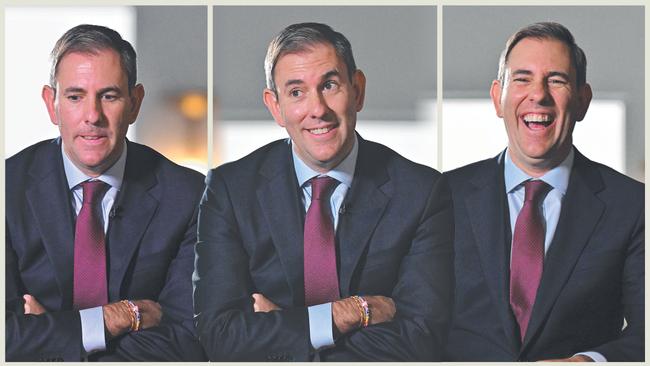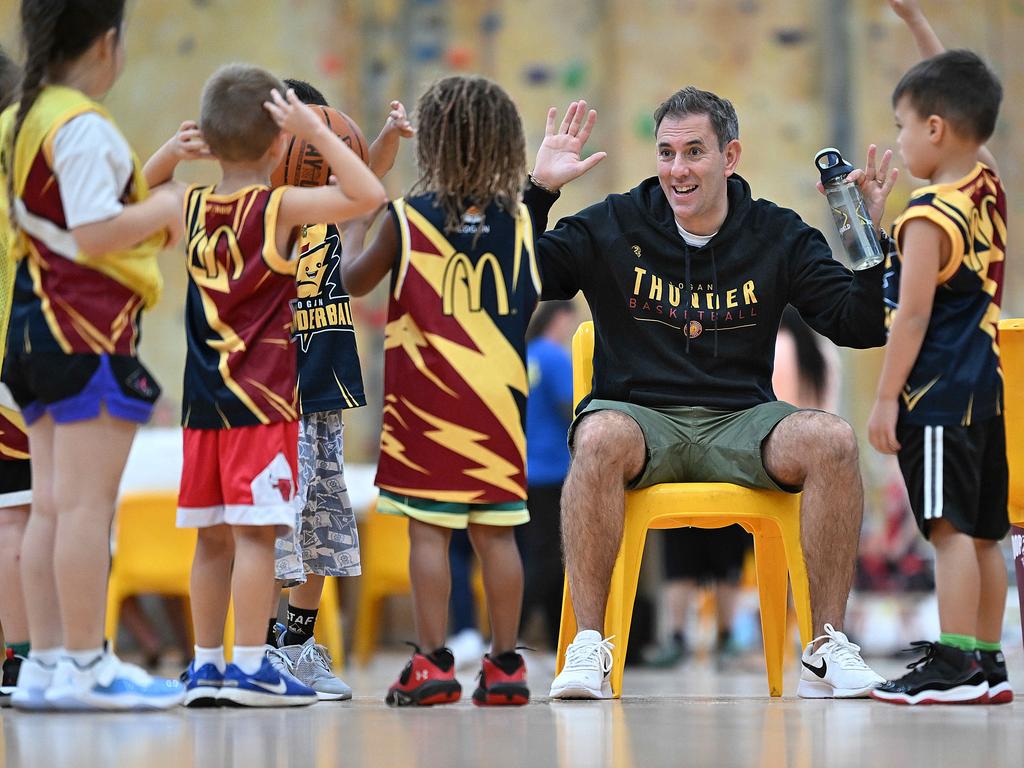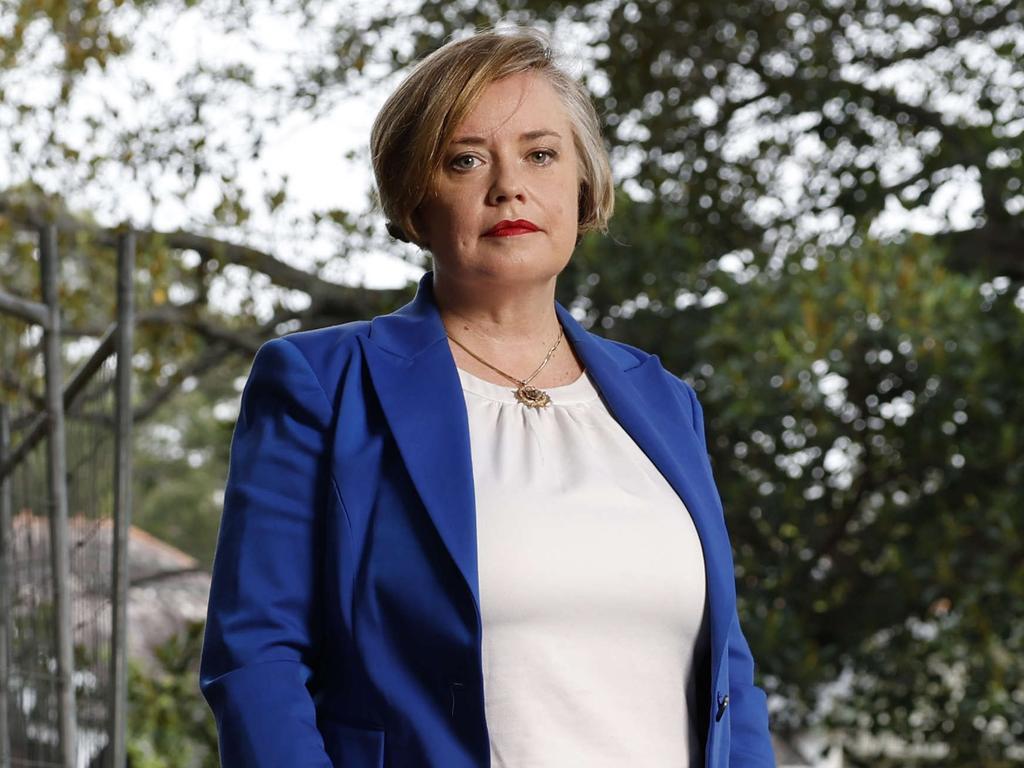Jim Chalmers’ big inflation bet puts him at odds with RBA
Jim Chalmers will put Labor’s credibility on the line with Treasury expecting inflation to hit the 2-3 per cent target band by December – a year faster than RBA projections.

Jim Chalmers will put the government’s economic credibility on the line 12 months out from the election, with Treasury forecasts in Tuesday’s budget expecting inflation to hit the 2-3 per cent target band by December – a year faster than new Reserve Bank projections.
In a major divergence from updated RBA forecasts released last week, Dr Chalmers’ third budget will assume a rapid fall in inflation that if realised would heap pressure on the central bank to slash rates ahead of a May 2025 election.
Treasury forecasts, which downgrade economic growth over the next two financial years, suggest the headline inflation rate will return to the target band by the end of 2024. The assumption is in sharp contrast with RBA projections that inflation and rates will remain higher for longer.
The RBA board, which has hiked rates 12 times since the 2022 election when inflation was running at 6.1 per cent, kept the cash rate at 4.35 per cent at their meeting last Tuesday but did not rule-out further increases if inflation remains sticky.
Upgraded RBA forecasts said inflation would rise from 3.6 to 3.8 per cent in June and remain at that level until December. The Reserve Bank outlook expects inflation to fall to 3.2 per cent in June next year and 2.8 per cent by December.
The budget, which predicts a faster inflation recovery than flagged in the December mid-year budget update, shows Treasury expects a rapid plunge in consumer spending that would see inflation hit 3.5 per cent by June and 2.75 per cent by mid-2025.
Treasury analysis in the budget will say there is “considerable uncertainty around the outlook for the domestic and global economy” and that forecasting inflation is more difficult than usual. The budget also bakes in more subdued economic growth forecasts, with real GDP growth of 2 and 2.25 per cent expected in 2024-25 and 2025-26.
Dr Chalmers, who has framed the budget as being focused on lowering inflation in the short term and growth in the medium term, is under pressure from the RBA, economists and Coalition to rein in spending and avoid stoking inflation. The Treasurer on Sunday announced a new $1.1bn budget package over four years to pay superannuation on commonwealth-funded paid parental leave for births and adoptions starting from July 1 next year. The superannuation top-ups will cost $623.1m per year, which is significantly higher than initial costings. In a budget eve spending spree targeting “mums, families and Middle Australia”, the 46-year-old revealed billions of dollars have been set-aside to support pay hikes for low-paid aged care and childcare workers. The government had already allocated $11.3bn for the first stages of aged care sector wage increases.
Dr Chalmers, who is tipped to increase Commonwealth Rent Assistance for the second straight year and extend the government’s Energy Bill Relief package, has said that Labor’s revamped stage three tax cuts are the “foundation stone of our cost-of-living relief”.
After flagging billions of dollars for cost-of-living relief measures, housing and Future Made in Australia – in addition to other structural spending priorities – Dr Chalmers on Sunday said the budget “will put downward pressure on inflation, not upward pressure on inflation”. “Our budget will be part of the solution to cost-of-living pressures, not part of the problem. Inflation is moderating in welcome ways but it’s not mission accomplished because people are still under pressure,” he said. “Inflation is still the big near-term challenge in our economy which is why the government is doing its bit in the budget.”
The Australian understands Treasury’s inflation forecasts are based on the lagging impact of higher interest rates on consumer spending. Weaker consumer spending has been assumed as households tighten their budgets and more Australians come off fixed rates.
Australian Bureau of Statistics retail spending figures last week revealed a 0.4 per cent fall in the March quarter, with retail sales volumes down 1.3 per cent compared to the same time last year.
Speaking on Sky News ahead of unveiling a second surplus on Tuesday night, Dr Chalmers said RBA governor Michele Bullock’s forecasts do not take “the budget into consideration”.
“It’s just a function of timing, not a function of opinion. The other point that is important to remember is even with that inflation figure that we got for the most recent quarter; we are still travelling better in annual inflation than we expected in the mid‑year update in December,” he said.
“We’re actually ahead of that. The near-term Reserve Bank forecasts are broadly consistent with what we thought in December as well. We’re making progress in the fight against inflation, but it’s not mission accomplished because people are still under the pump and that’s why inflation’s a big focus of the budget.”
Dr Chalmers was speaking after returning to Canberra having spent the weekend with his family in Brisbane, where he took son Jack to play basketball, and went with daughter Annabel to choose Mother’s Day flowers for his wife Laura and his mum Carol.
Dr Chalmers said Labor’s cost-of-living relief package would not be identical to last year’s budget but there would be “substantial” support to take the edge of rents and energy bills.
The Queensland MP, who said he would not “chase the petrol price up and down” and impose costly temporary fuel excise relief, defended Labor’s failure to deliver an annual $275 reduction in power bills by 2025. After a series of electricity and gas price increases, he said “that modelling was done in 2021 about an outcome in 2025”.
Opposition Treasury spokesman Angus Taylor on Sunday said the most important test for the budget was whether it “brings down Labor’s homegrown inflation”. Mr Taylor questioned whether Dr Chalmers would re-establish fiscal guardrails needed to secure a structural budget balance and ensure the economy “grows faster than spending”.
“What we’ve seen from Labor to date is two failed budgets, they haven’t delivered this cut in the inflation. If we have another flop in this budget, Australians are going to pay a very high price,” Mr Taylor said. Mr Taylor, who is preparing an economic election policy designed to fight bracket creep, said “the really insidious effect we’re seeing on personal income taxes right now is inflation”.
Australian Chamber of Commerce and Industry chief executive Andrew McKellar said there must be a “clear medium-term strategy for budget repair” and urged the government to do more to tackle inflation.
“When you’re talking about a strategy that is designed to take the pressure off cost-of-living or address the cost of doing business … the best way to do that is to get to an environment where interest rates start coming down more rapidly,” Mr McKellar said.
Additional reporting: Sarah Ison








To join the conversation, please log in. Don't have an account? Register
Join the conversation, you are commenting as Logout